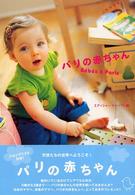Full Description
Sociocultural Theory (SCT), as formulated by Russian psychologist L. S. Vygotsky nearly a century ago, is distinct among traditions in the field of second language (L2) studies in its commitment to praxis. According to this view, theory and research provide the orienting basis for practice, which in turn serves as a testing ground for theory (Vygotsky, 1997). This Element offers a synthesis of foundational concepts and principles of SCT and an overview of two important areas of praxis in L2 education: Concept-Based Language Instruction, which organizes language curricula around linguistic concepts, and Dynamic Assessment, a framework that integrates teaching and diagnosing learner L2 abilities. Leading approaches to L2 teacher education informed by SCT are also discussed. Examples from studies with L2 teachers and learners showcase praxis in action, and emerging questions and directions are considered.
Contents
1. Introducing sociocultural theory; 2. Concept-based language instruction; 3. Dynamic assessment; 4. Teacher education; 5. Concluding remarks; References.








